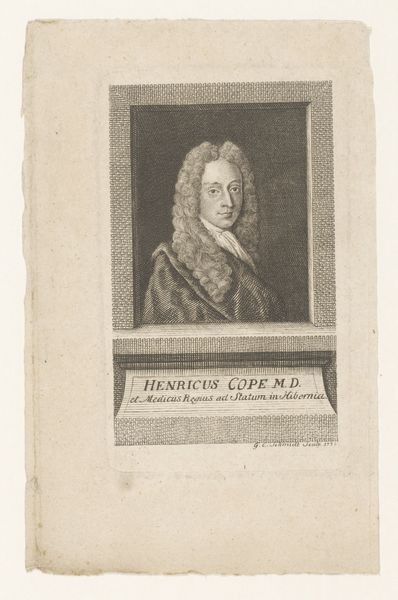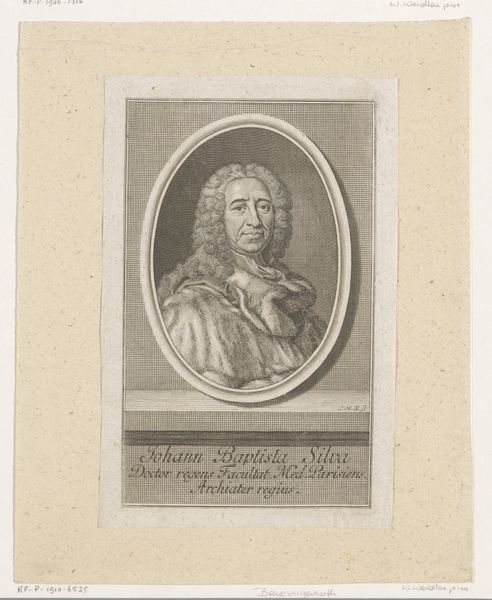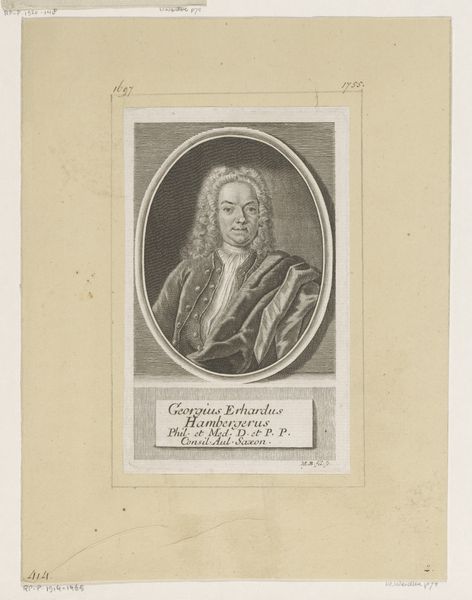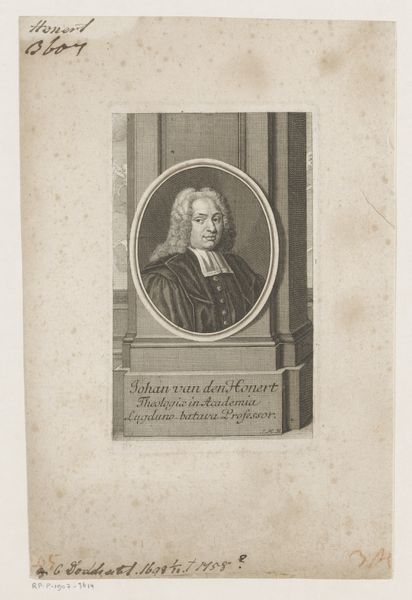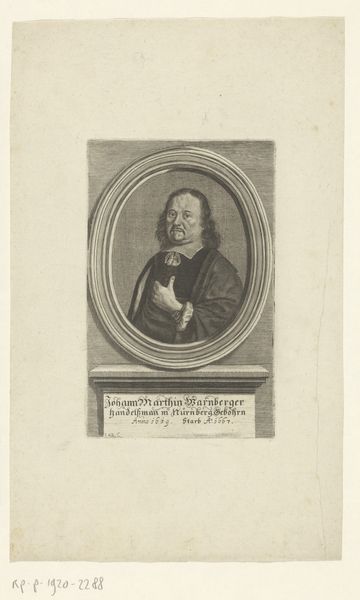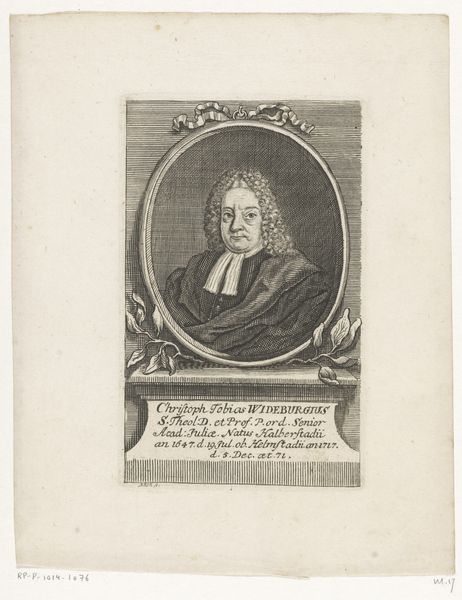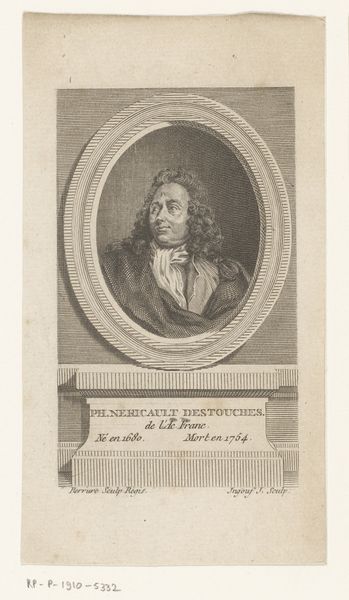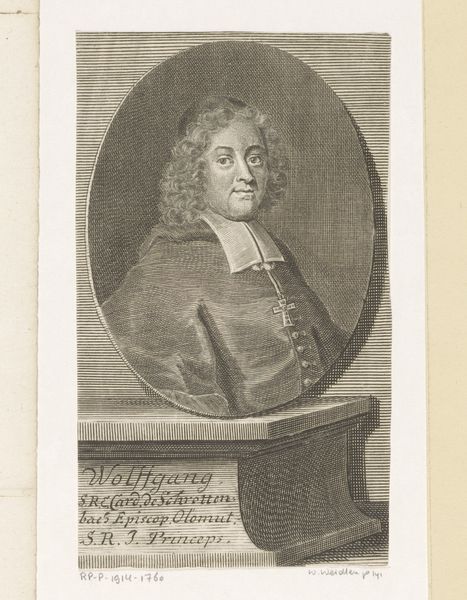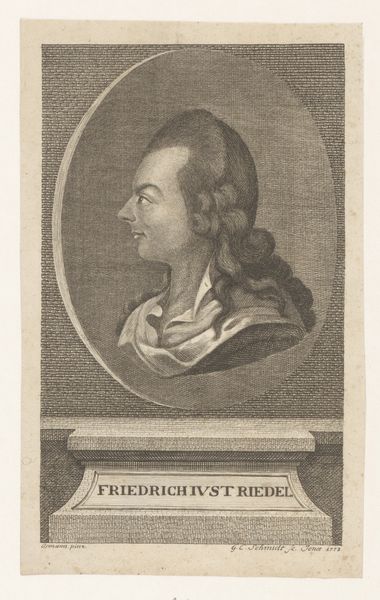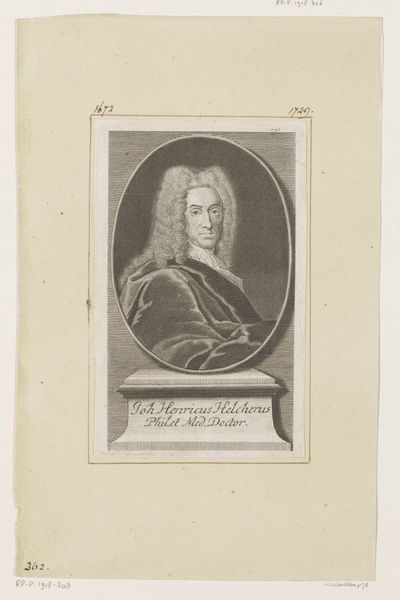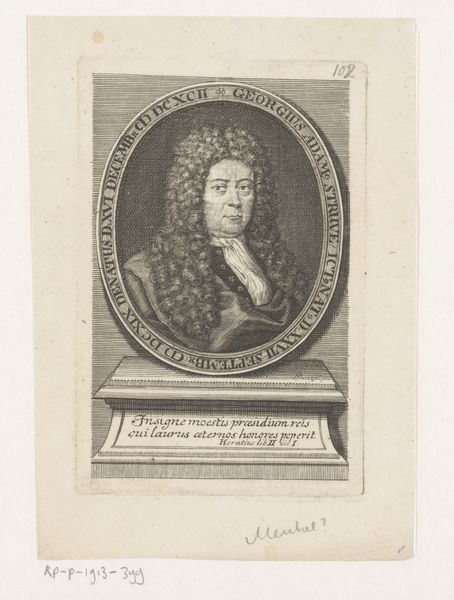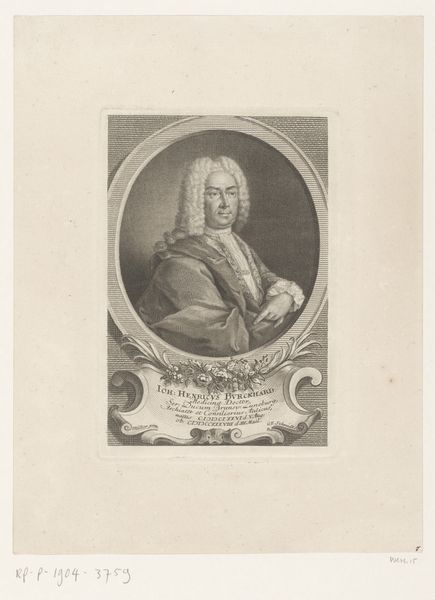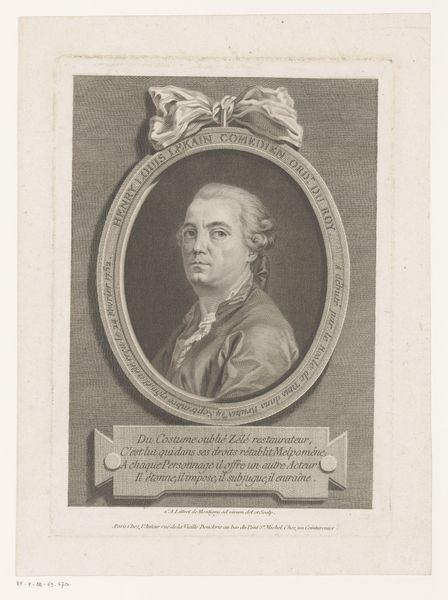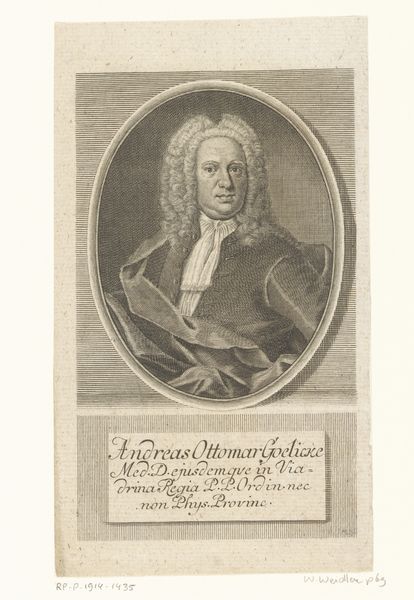
intaglio, engraving
#
portrait
#
baroque
#
intaglio
#
old engraving style
#
engraving
Dimensions: height 166 mm, width 98 mm
Copyright: Rijks Museum: Open Domain
Jakob Wilhelm Heckenauer created this portrait of Friedrich Weise using engraving, a printmaking technique that demands precision and control. The artist would have used a tool called a burin to carve lines directly into a metal plate, likely copper. Consider the amount of labor involved; each line is a deliberate act, contributing to the overall image. The density of the lines creates tone and shadow, giving form to Weise's face and clothing. The inscription, meticulously rendered, identifies the sitter and his titles. The very nature of engraving, with its capacity for producing multiples, speaks to the rise of a print culture and the dissemination of images in the 18th century. Engravings like this were not merely decorative; they served as a form of social currency, circulating likenesses and reinforcing social hierarchies. This work blurs the line between craft and art. The skill of the engraver is undeniable, yet the function of the print also connects it to broader social and economic systems. By attending to the material and the making, we gain a richer understanding of its historical significance.
Comments
No comments
Be the first to comment and join the conversation on the ultimate creative platform.
